The Diversity Fellowship: Forging a New Path
by Liz Donges
In American orchestras, most orchestra musicians are white. This lack of diversity on stage represents, perhaps, the single greatest challenge that exists in the classical arts. The problem isn’t necessarily a scarcity in available musicians of color, but from deficiencies in the existing pathways to the professional level. The Cincinnati Symphony Orchestra and University of Cincinnati College-Conservatory of Music (CSO/CCM) Diversity Fellowship is forging a new path by eliminating barriers to professional experiences, educational opportunities and access to funding.
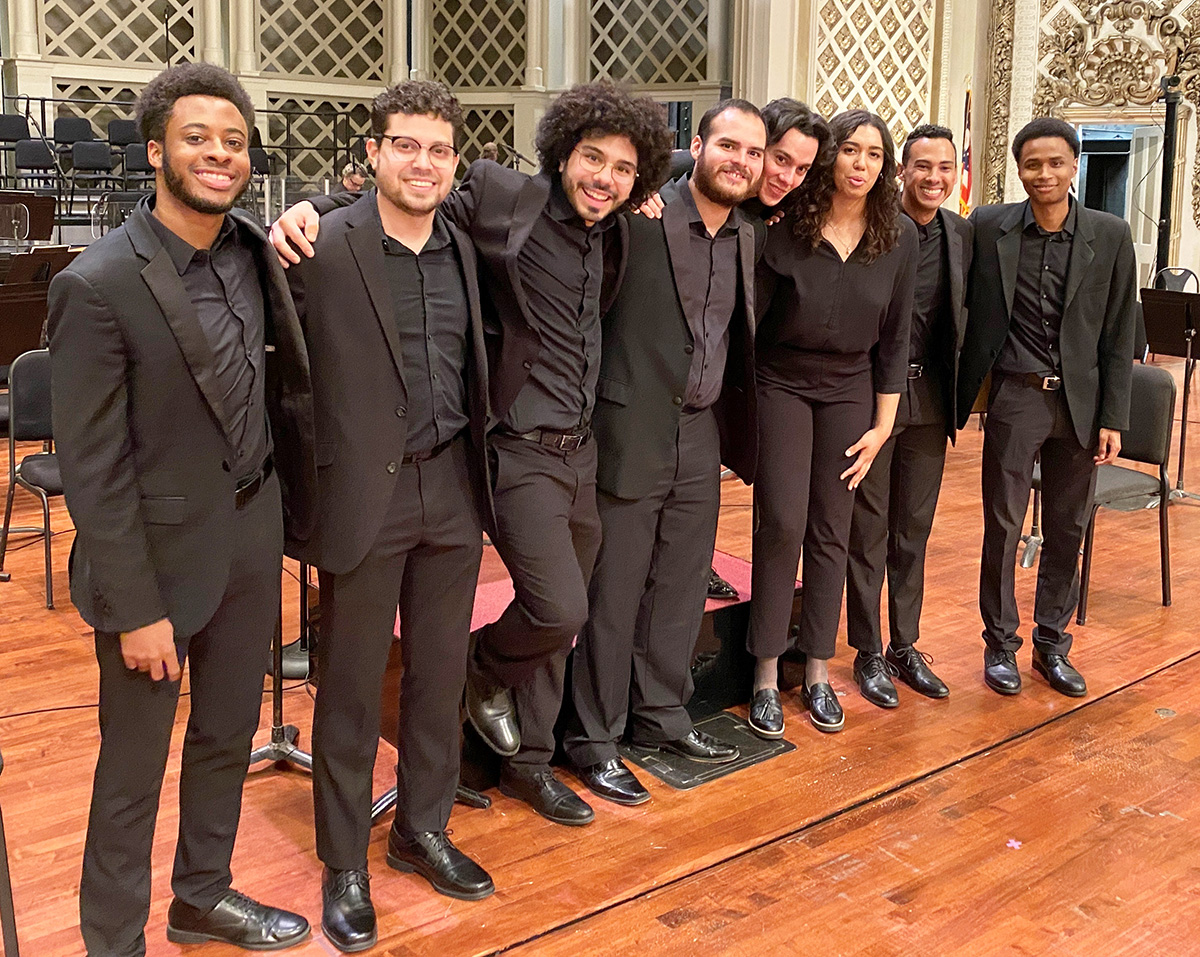
“The lack of diversity on stage is a systemic issue that requires a systemic approach,” explained President & CEO of the CSO Jonathan Martin. “We recognize this, and the CSO/CCM Diversity Fellowship, while serving to open doors for the Fellows, has also catalyzed the development of deeper DE&I strategies and programs at the CSO.”
“Representation and visibility matter,” said The Honorable Nathaniel R. Jones Chief Diversity & Inclusion Officer Harold Brown. “In addition to being outstandingly talented musicians, the people on stage need to reflect the people in our community. When we see ourselves on stage, then we can see ourselves in the audience, our children can see themselves as future musicians, we see ourselves on the board, we see ourselves as subscribers and donors. Diversity on stage does not just benefit the Orchestra, it benefits the whole organization and community.”
One of the first programs of its type, the CSO/CCM Diversity Fellowship was created in 2015 to amplify and support string players from populations historically unrepresented in American orchestras. Fellows receive a specialized two-year graduate degree-level education that offers traditional conservatory training through CCM alongside professional development and mainstage performance opportunities with the CSO. To date, 28 musicians have participated in the Fellowship program.
“Learning what it feels like to sit in a professional orchestra, to critically listen and contribute to the total sound of the ensemble, cannot be replicated. It is lived experience that prepares our Fellows for their next steps, and we are dedicated to providing that experience for future cohorts,” said Carol Dary Dunevant, CSO Director of Learning, who manages the Fellowship program.
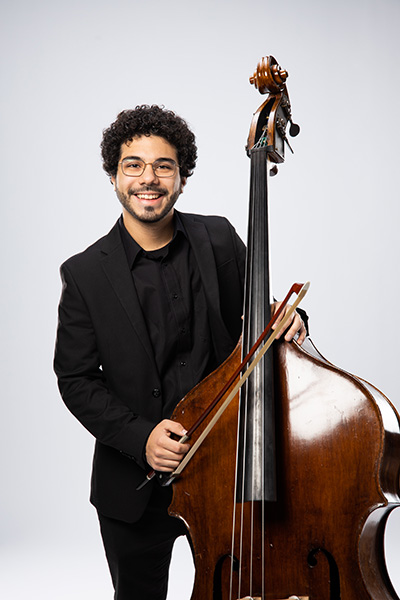
“I applied to 11 different colleges, and this was the only one I applied to that provided education and professional experience,” recalls Luis Arturo Celis Avila, a bassist and 2021-22 Diversity Fellow. “The professional experience we receive with the Fellowship is incomparable. We are simply ahead when we graduate because we have performed with the CSO.”
The learning continues offstage, too. Each Fellow is paired with a mentor from their respective sections and participates in mock auditions.
“The mock auditions are more than just a ‘yes, you won the job’ or a ‘no, you did not win the job,’” explains Dunevant. “It provides the opportunity for our Fellows to receive direct feedback from the CSO musicians, which often doesn’t happen after a real audition. It gives our Fellows the ‘why,’ and that can make all the difference in their career trajectories.”
Are these new pathways to success working?
Well, since the Fellowship’s inception, 11 Diversity Fellows have won auditions with orchestras in the United States. For the upcoming 2022-23 season, Emilio Carlo, Luis Arturo Celis Avila and Dan Wang won positions with the CSO; Denielle Wilson with the Atlanta Symphony Orchestra; and Magdiell Antequera with Artis-Naples.
Success isn’t only measured by those Fellows who win orchestral musician positions. Fellows have also pursued careers offstage in administrative and education positions.
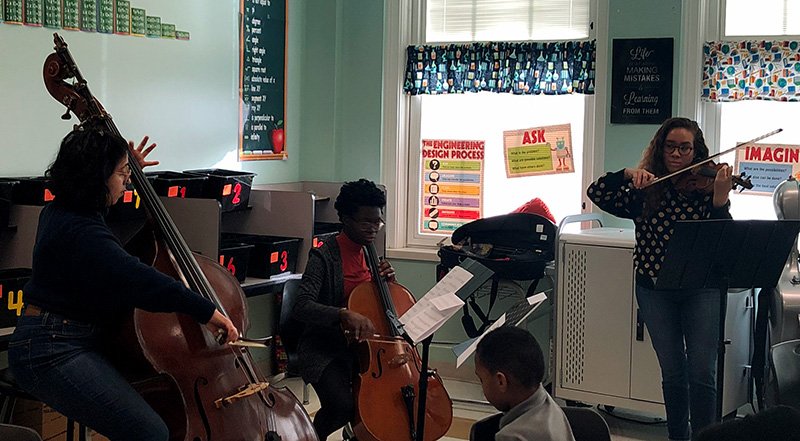
“The network I developed through the Fellowship program workshops led me to my first job after graduation,” said Alexis Shambley, a violinist and 2018-20 Diversity Fellow. “I became a teaching artist at MyCincinnati, a free music program in Price Hill for students beginning in third grade. Now I have branched into orchestral administration as a member of the CSO marketing department.”
Blake-Anthony Johnson (2016-17) and Ian Saunders (2017-19) have also transitioned into administrative and education roles, respectively. Johnson currently serves as the President and CEO of the Chicago Sinfonietta, becoming the first African American executive to guide a nationally renowned orchestra. His work focuses on providing access and public service to all people through community and education-based initiatives. Saunders recently joined the String Training Education Program (STEP) as its artistic director after serving as the Dean of artistic and social change at the Longy School of Music. In his new role, he aims to expand education efforts in the development of young musicians.
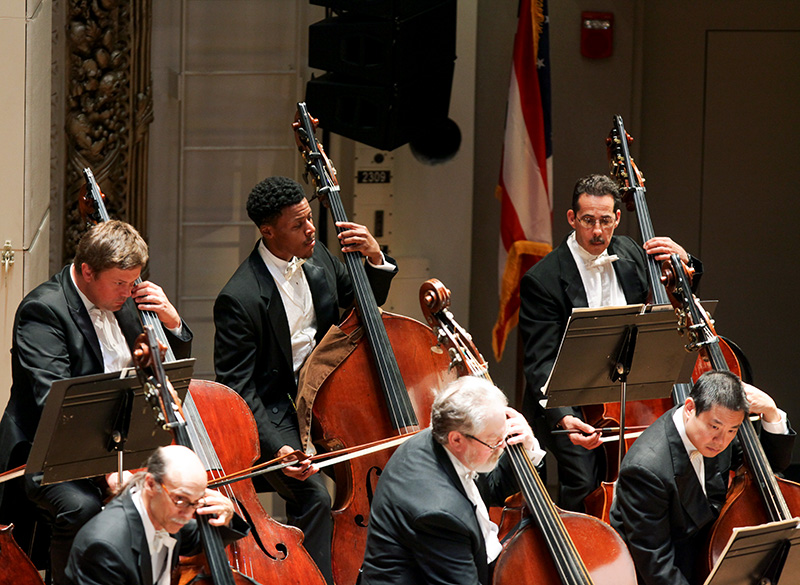
“We recognize that professional careers can evolve in many different ways,” said Martin. “We are proud of each and every one of our Diversity Fellows for their musicianship and dedication to accelerating change in the industry, on and off the stage.”
Industry-wide, the CSO/CCM Diversity Fellowship is one of only a handful of programs that were created to begin addressing the systemic issue of diversity in American orchestras.
In 2019, the CSO developed and adopted a ten-year strategic plan that included a set of goals and objectives to further its existing diversity, equity and inclusion (DE&I) initiatives. When the realities of systemic inequity, injustice and racism in America were once again brought to the forefront by the murder of George Floyd in 2020, the CSO accelerated its DE&I work. Since then, diversity, equity and inclusion have been at the forefront of every conversation, action, plan and strategy.
“It’s important for people to understand that this program is not just to benefit the CSO. We are committed to helping the field, and we have a responsibility to elevate these issues across all other orchestras in the country,” said Martin.
The Fellowship is a robust education program and a strategy to tackle industry-wide systemic racism. But at its heart, it is a program that is actively changing the lives of aspiring young musicians.
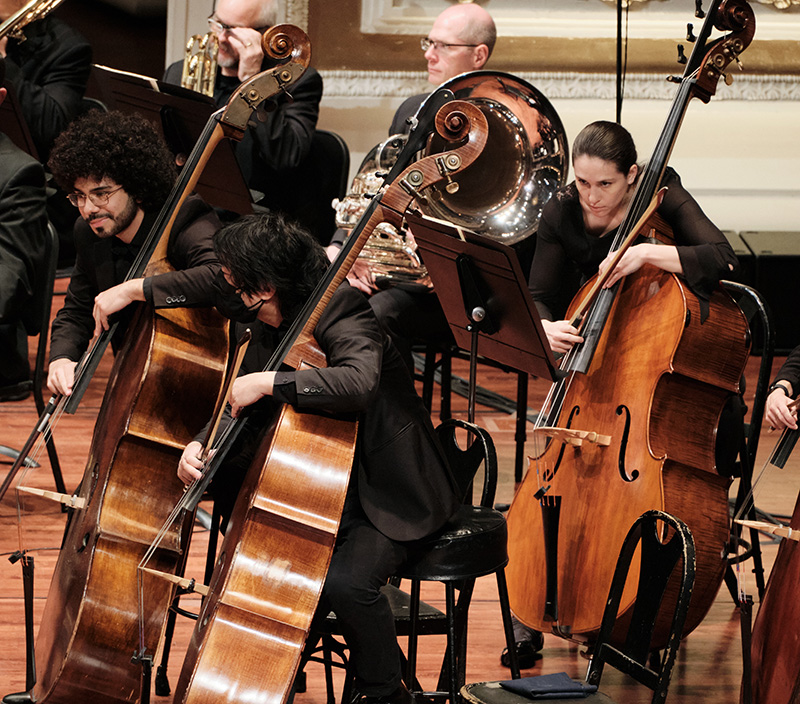
Take Luis Celis as an example. He cites his mentor Owen Lee, CSO Principal Bass and Adjunct Assistant Professor of Double Bass at the University of Cincinnati-College Conservatory of Music, and Carol Dary Dunevant, as people who changed his life.
“Owen is very important to me. He dedicated not only his time for the program, but also made himself available any time I needed him,” reminisced Luis Celis.
“And when I won the audition with the CSO,” Luis Celis continued, “Carol was there and she hugged me and grabbed my hand. She took me to the administrative offices and announced I was the newest member of the CSO, and everyone cheered and clapped for me. I was crying. The sense of belonging is amazing. It’s really beautiful, and I am so excited to start my career with the Cincinnati Symphony Orchestra.”